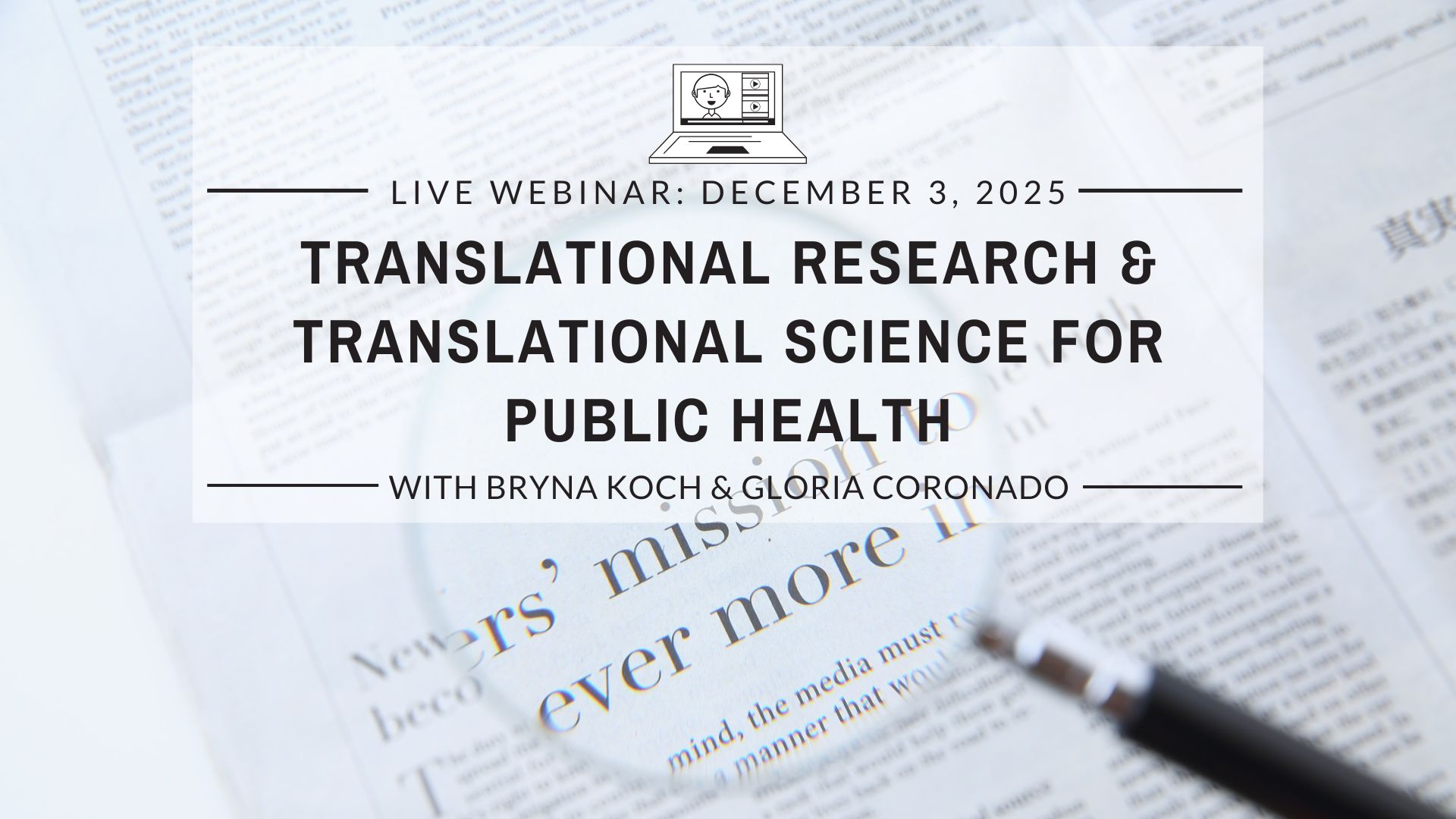***This live event has passed. Access the recorded webinar here.***
In this presentation, Bryna Koch and Gloria Coronado from the University of Arizona Mel and Enid Zuckerman College of Public Health will provide an introduction to translational research and translational science and describe the connections between these fields and public health practice.
Learning Objectives:
- Define translation research and translational science
- Describe the structural support for translational research and translation science in the U.S.
- Describe the connections between the public health system and translational research and translation science
- Identify how collaboration between public health and translational research and translation science can address critical community disparities in access to evidence-based treatments and approaches
Target Audience: Public Health Professionals and Students
Recorded: December 3, 2025
Disclosures: The planners, reviewers, and authors have no declared conflicts of interest.
CE Available:
- Continuing Education Contact Hours for Certified Health Education Specialists (CHES): This program is designated for Certified Health Education Specialists (CHES®) and/or Master Certified Health Education Specialists (MCHES®) to receive up to 1.0 total Category I continuing education contact hours. WRPHTC provider number 99036.
Accreditation Statement

The WRPHTC is a Designated Multiple Event Provider of Continuing Education Contact Hours (CECH) for Certified Health Education Specialists (CHES) through the National Commission for Health Education Credentialing, Inc.
Format: Webinar

